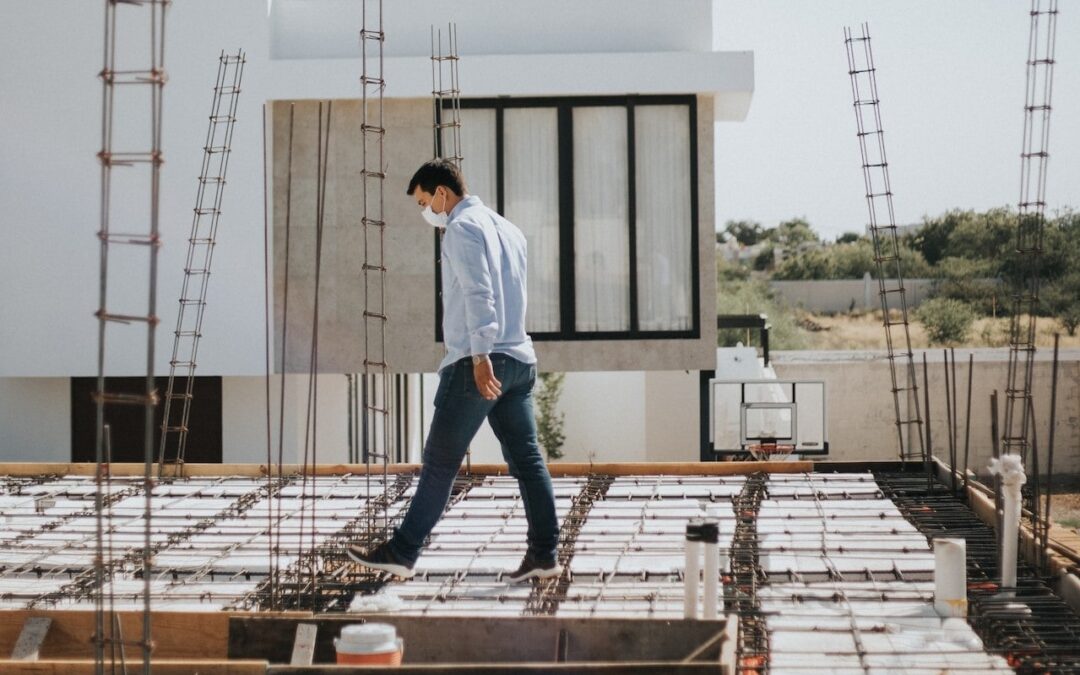We often hear that the most important part of the house is its foundation. Times and seasons may change, but this truth remains true today. All the components of the structure above the ground are dependent on the foundation hidden underground. With this, it is worthwhile spending some time looking into this.
Importance of House Foundation
House foundation is neither displayed nor admired by your neighbors and visitors. However, the foundation of your home is what keeps the structure from falling apart. Without an excellent quality foundation, your home wouldn’t hold itself upright.
With this said, it is fitting to look into the different house foundation types. Some materials are used in different kinds like wood and stone. However, we won’t be looking into these, but will focus our attention on concrete foundation types.
Types of foundations based on how deep or shallow the structure also exists. Since we are looking into what is suited for homes, we will take the deep types out of the picture.
Kindly note as well that in the Philippines, poured concrete is the most used type of foundation since the country is not prone to freezing and thawing brought by frigid temperatures.
Most Common Types of House Foundations
On the basis of foundation isolation, there are several types we can look into.
- Individual Footing or Isolated Footing. This kind of foundation is the most common and simple type of foundation in house construction. The foundation for each column is not connected to the other footings of the house. It is also called a pad foundation.
- Combined Footing. As its name suggests, this type combines two or more isolated footings that are in proximity to each other. It is also done when these footings overlap. You should note that their structural design may differ.
- Spread/Strip Footings and Wall Footings. This type of footing is characterized by its wide base. It is used when individual columns, walls, or piers are within three meters of the surface.
- Mat Foundations. The base of the mat or raft foundation covers the whole base of your house. This means all the load-bearing columns and elements are connected with each other. The purpose of this type of foundation is to support very high loads from the structure.
Factors to Consider When Choosing the Ideal House Foundation

Choosing which type of foundation to use often depends on several factors revealed by the soil test. It is highly recommended to conduct this test to see the properties of the soil on which you will be building your dream home.
- Moisture Content. The water content of your soil is an important parameter when designing your foundation, as it may affect the ability of your structure to remain standing. There are several methods to test this, such as Torsion Balance Method.
- Dry Density. This depends on the soil’s void ratio and specific gravity.
- Compaction. Tests are done to measure the compaction characteristics of the soil as it would affect the foundation type suited for your house.
There are other factors you may consider looking into.
- Topography. Will your house be built on flat ground or a steep slope? This will affect the kind of foundation recommended for your dream home.
- Climate. Is the area mostly dry? Does it always rain there?
Keep in mind that foundation design and house designs are customized based on different factors, so it varies for every structure. It is highly advised to consult geodetic and structural engineers to get proper professional advice regarding the most recommended foundation for your dream home.
Anyhow, whichever type of foundation you will be building your dream house on, it is suggested to buy bulk cement and other house foundation materials. Buying in high quantities will save you some cash, as you can score discounts if the items are bought in one go.
Super and Extra Strength for Home Foundations

Among the major components of your concrete mixture for foundations is cement. One trusted and high-quality brand you can buy in the Philippines is Union Cement. It adheres to and even exceeds the Philippine National Standards, so you have nothing to worry about. Here are two Union Cement products you should consider for your home foundation.
- Union Super Strength 40. Union’s Type IP cement product blended with superb mineral additives can achieve a compressive strength of up to 40 MPa after 28 days, exceeding Philippine National Standards of 25 MPa after 28 days.
- Union Extra Strength ES. Union’s type 1P Portland-Pozzolan cement variant formulated for general concrete applications and available in stores at key markets nationwide.
Consistent with parent company PHINMA’s vision of making lives better, Union Cement provides reliable and consistent supply of high-quality cement products and services to support our country’s construction and infrastructure requirements.
Union Cement is part of the PHINMA Construction Materials Group (PHINMA CMG), which includes affiliates Union Galvasteel Corporation, and PHINMA Solar Energy Corporation. The synergy of these three companies allows PHINMA CMG to provide high-quality steel, cement, and solar solutions at outstanding value to customers nationwide.
Union Cement ang Sementong Astig. Basta semento, i-Union Cement mo! Visit our Contact Us page or Union Cement Facebook page to know more.


Latest Posts